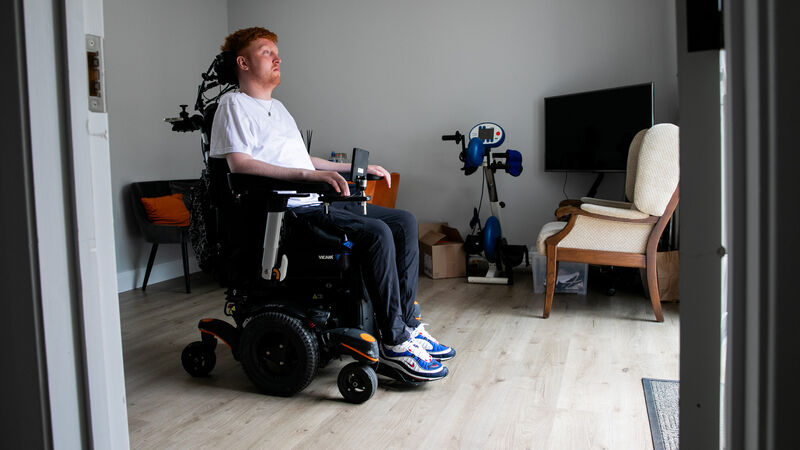Man paralysed in accident denied disability allowance due to partner’s income

Following a mountain biking accident at the age of 21, Eoghan Gorman has been left paralysed from the shoulders down. Photo: Gareth Chaney
A Dublin man who suffered a traumatic spinal injury said his independence as an individual has been taken from him as he has been told he is not eligible for disability allowance.
Following a mountain biking accident at the age of 21, Eoghan Gorman has been left paralysed from the shoulders down.










